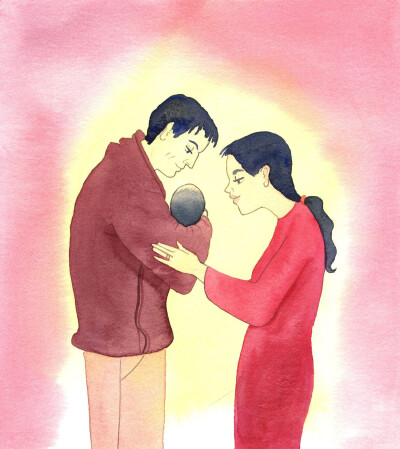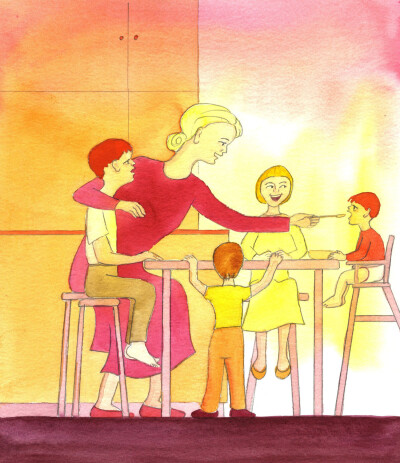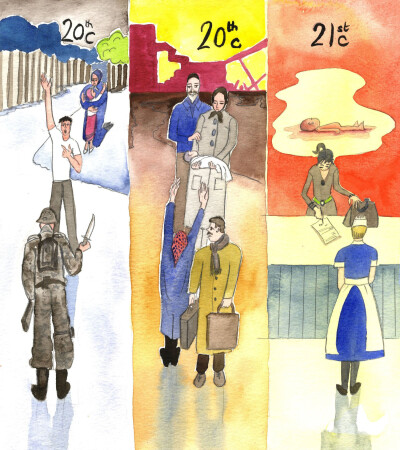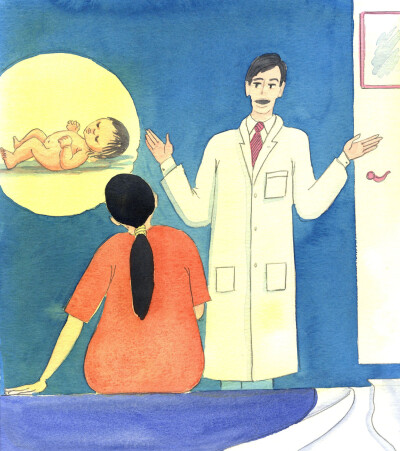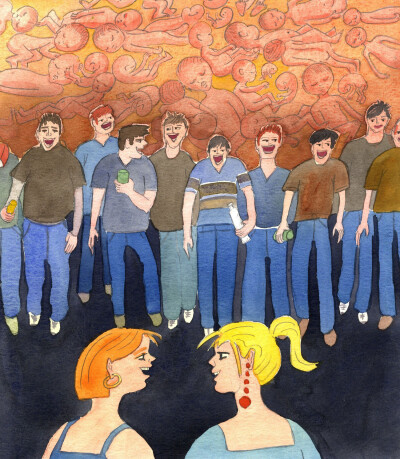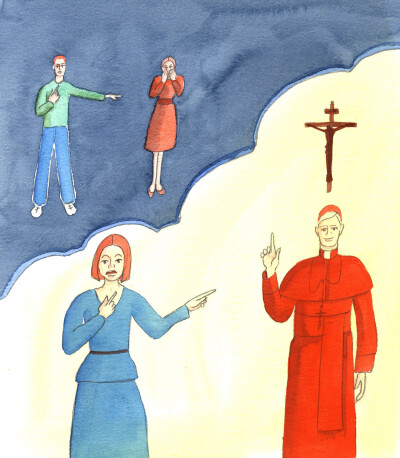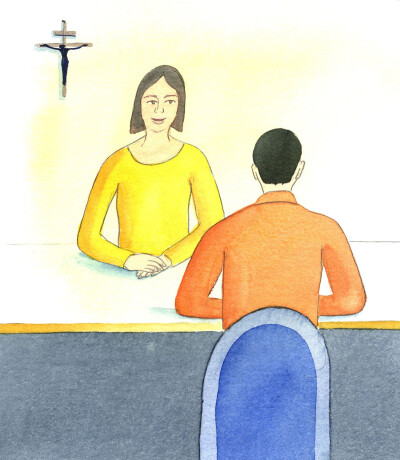Search Page
Showing 1 - 15 of 15
When spouses are obedient to God's plan for marriage, they want to be faithful to one another, and if it is possible the wife seeks to care for the children as only a mother can, the father wants to support the whole family, and the children are happy, well looked after and secure.
The Lord delights in seeing mothers who love their children and who are able to care for them at home - though He understands that in sad circumstances this is not always possible, and knows that some mothers who wish to pursue a career make good arrangements for their childrens' well-being.
Some Anglican women do hear a call from God to full-time service amongst Christian people; but it is mistaken as a call to Priesthood, when it is not His wish that women be priests, nor that people believe that Anglican Orders are valid.
Fathers have traditionally sacrificed themselves to defend their wives and children. Mothers have traditionally sacrificed their hopes, in times of crisis, to send their children into safe-keeping, away from danger. Today, many mothers sacrifice their babies on the altar of convenience. To avoid hardship to themselves, they sentence their own children to death by abortion.
It is a strange era, when some doctors provide a service to certain people, showing willingness to abort their female babies. The message they send out is a terrible message. "It is all right to kill your daughters, who are worthless, and will be a drain on your family".
Since abortion became 'abortion on demand', some men have been able to tell themselves: "If my girlfriend gets pregnant, it'll be her fault, and anyway, she can get an abortion". They lose all sense of responsibility.
The husband deserves respect, as the head of the family: that is the truth shown out in Sacred Scripture and the constant teaching of the Church. A wife has an equal dignity, in God's sight, and deserves respect, love, and genuine care; yet she is not the head, and has a different role.
Wherever Catholics live out their faith with goodness and conviction, they have an effect upon their culture, as Catholics have since the earliest times. The Bishops hand on the truth from Jesus Christ, people are forgiven and transformed, freed from superstition, men and women are equal in marriage, the sick are cherished and not rejected, prisoners receive justice, little girls are educated, children are valued, even the unborn, the arts flourish - art, architecture, music and scholarship - and the Saints set an unparalleled example of goodness, in all sorts of ways.
Just as a man's pride can prevent him forgiving his wife her sins, if he asks: "Why should I forgive her when she has betrayed me?" - so a person's pride can prevent acceptance of the Pope's teaching on marriage, handed on since Christ and the Apostles, if she asks: "Why should I accept the Pope's teaching, when he has never been married?"
Any wife ought to say what she believes is right, in conversation with her husband, but in obedience to Christ and the Apostles she ought always to speak with respect, and bearing in mind the fact that, in God's sight, her husband is the head of the household; and God wants her to honour him as the head, according to the tradition.
Christ sees dark clouds of evil across much of the globe, clouds which hide the many cruelties and evils practiced against people of other races, religions, or another gender: all sorts of enslavement and torture, by people who want to retain their power. Black clouds over western Europe represent the evils occurring in abortion clinics.
The Book of Revelation describes God's grace as flowing like a river of life-giving water, flowing from His throne and from the Lamb. Do all the thoughts and actions that pour out of our hearts and lives engender charity, make people holy, and do so in every circumstance? Are we God-like, in the fruitfulness of our lives?
Autobiography of Elizabeth Wang, Part 2
This text forms part of Elizabeth Wang's Falling in Love: A Spiritual Autobiography (1999). It tells the story of her life and of her spiritual journey as she came to know Christ and His Church.
You …
Autobiography of Elizabeth Wang, Appendix on Prayer
This text forms part of Elizabeth Wang's Falling in Love: A Spiritual Autobiography (1999). It tells the story of her life and of her spiritual journey as she came to know Christ and His Church.
You …
A Picture of a Faithful Diocese
A short piece of writing by Elizabeth Wang about how the Catholic faith can be lived and celebrated within a Faithful Diocese, and the responsibilities of all the faithful - and especially bishops - t…
Showing 1 - 15 of 15

